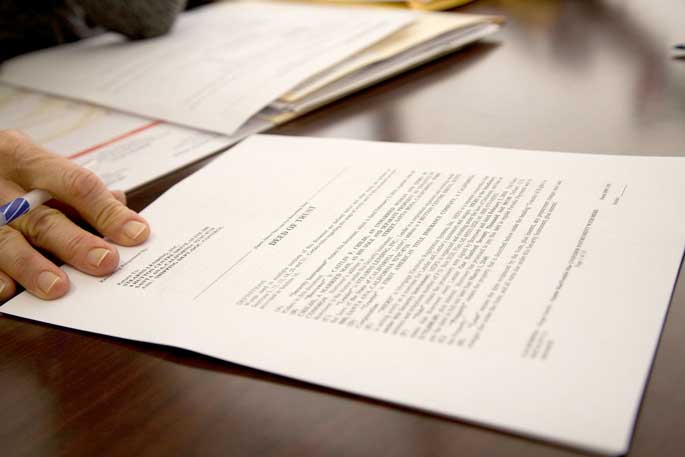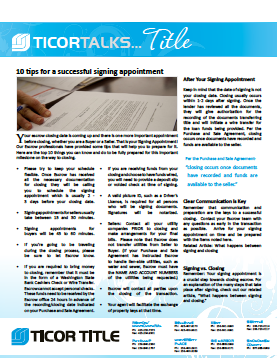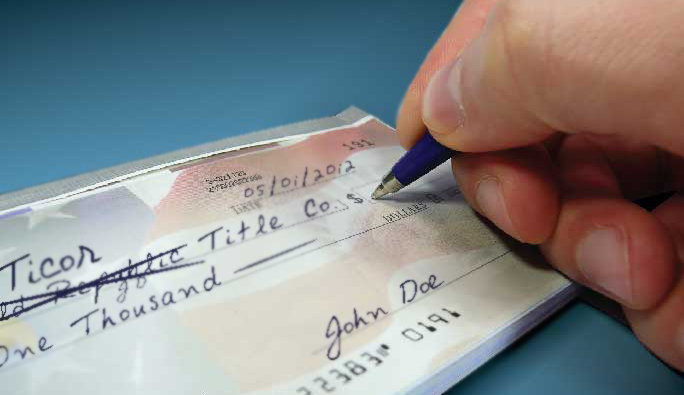Your escrow closing date is coming up and there is one more important appointment before closing, whether you are a Buyer or a Seller. That is your Signing Appointment! Our Escrow professionals have provided some tips that will help you to prepare for it. Here are the top 10 things you can know and do to be fully prepared for this important milestone on the way to closing.
Signing vs. Closing
Remember: Your signing appointment is a crucial step towards closing escrow. For an explanation of the many steps that take place after signing, check out our related article. What happens between signing and closing.
Tips for a Smooth Signing Appointment
- Please try to keep your schedule flexible. Once Escrow has received all the necessary documentation for closing they will be calling you to schedule the signing appointment which is usually 2 – 3 days before your closing date.
- Signing appointments for sellers usually take between 15 and 30 minutes.
- Signing appointments for buyers will be 45 to 60 minutes.
- If you’re going to be traveling during the closing process, please be sure to let Escrow know.
- If you are required to bring money to closing, remember that it must be in the form of a Washington State Bank Cashiers Check or Wire Transfer. Escrow cannot accept personal checks. These funds need to be received by the Escrow office 24 hours in advance of the recording/closing date indicated on your Purchase and Sale Agreement.
- If you are receiving funds from your closing and choose to have funds wired, you will need to provide a deposit slip or voided check at time of signing.
- A valid picture ID, such as a Driver’s License, is required for all persons who will be signing documents. Signatures will be notarized.
- Sellers: Contact all your utility companies PRIOR to closing and make arrangements for your final bills. Please note that Escrow does not transfer utilities from Seller to Buyer. (If your Purchase and Sale Agreement has instructed Escrow to handle lien-able utilities, such as water and sewer, Escrow must have the NAME AND ACCOUNT NUMBERS of the utilities being requested.)
- Escrow will contact all parties upon the closing of the transaction.
- Your agent will facilitate the exchange of property keys at that time.
Download this article
To download a printable version of this article, please click the link below:
10 Tips for a Successful Escrow Signing Appointment
After Your Signing Appointment
Keep in mind that the date of signing is not your closing date. Closing usually occurs within 1-2 days after signing. Once the lender has reviewed all the documents, they will give authorization for the recording of the documents transferring title and will initiate a wire transfer for the loan funds being provided. Per the Purchase and Sale Agreement, closing occurs once documents have recorded and funds are available to the seller.
Per the Purchase and Sale Agreement, closing occurs once documents have recorded and funds are available to the seller.
Clear Communication is Key
Remember that communication and preparation are the keys to a successful closing. Contact your Escrow team with any questions as early in the transaction as possible. Arrive for your signing appointment on time and be prepared with the items noted here.
Related Article: What happens between signing and closing











